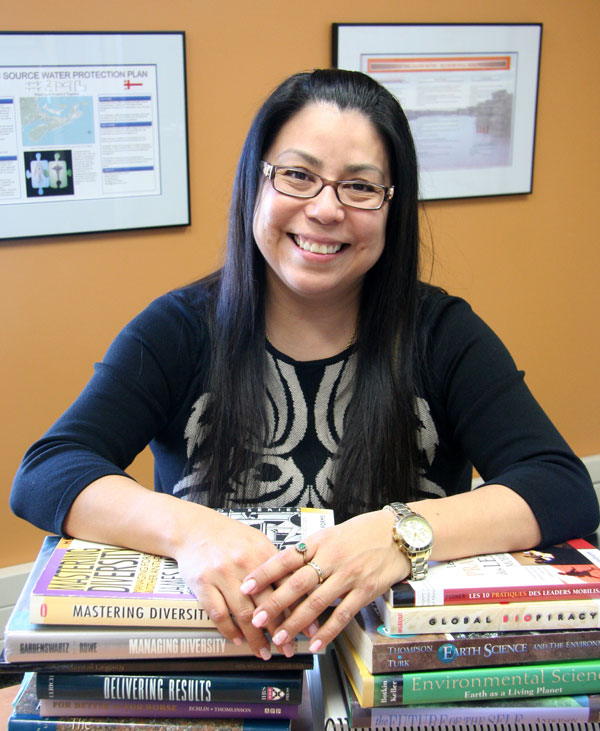Not your typical book club
- Angela Hill | March 20, 2015
It’s not your
standard book club, but it is a step towards realizing a dream for Candice
Pete.
Around a big
boardroom table, at an aboriginal law office in Saskatoon, Pete sits with a
handful of people. It’s a cold Saturday afternoon. Some attendees are lawyers,
there’s a law student, and at least one person has no background at all on the
topic of duty to consult.
But, the
titles and backgrounds don’t matter – that’s not the point.
“The point
is, we talk about change,” said Pete.
“Dialogue
will lead to other positive things … leads to building capacity in aboriginal
communities.”
That is her
goal; capacity for First Nations communities.
She worked towards
that as a manager with Aboriginal Affairs and Northern Development Canada.
She’s since moved on to being a director with the Indigenous Peoples Resource
Management Program at the University of Saskatchewan and is still looking to
help communities grow.
“I still like
to talk about things like duty to consult, land regimes and systems of policy
and how do we become familiar with those systems to that we can maneuver
through and within them,” Pete said.
“I like to
read and so I thought, I should start a book club.”
She talked to
some friends and her aunt, and realized there were others who would be
interested.
“So I thought
why don’t we start getting together and start to talk about these things, and
maybe by talking about these things we can teach each other and start talking
to other people … and work in some way that will help build capacity within our
community and individuals,” Pete said.
“It’s basically for anyone who is interested
and wants to have open discussion.”
But the book
club, which has met twice with different people attending each time, just the
beginning for Pete.
She sees the
information sharing getting bigger going into the future.
Pete sees there
being volunteer opportunities for people – policy people teaching communities
how to develop process or lawyers taking the time to create briefings from
decisions that will impact communities.
There has
been a workshop on how to read financial statements, and Pete in her job is
working on developing an aboriginal executive series to offer training for new
chiefs and council.
The time
between work and life blurs, but that is the way Pete likes it.
“I like to
read and I like to keep myself busy. This is a positive way to keep myself
busy,” she said.
“That’s what I was taught, my dad always used
to talk about helping people … he helped so many people, but he never expected
anything back.”
The first
book is finished, and the group is emailing to decide what’s next.
Pete said her
aunt suggested a book on administrative law (and she’s not sure if it’s a
joke). It might not be a standard book club pick, but for Pete it’s just
another opportunity.
“We need to
start to build information on getting to know what the systems are.”

